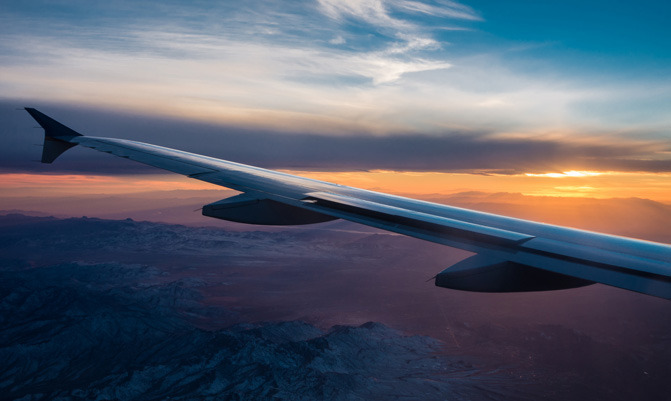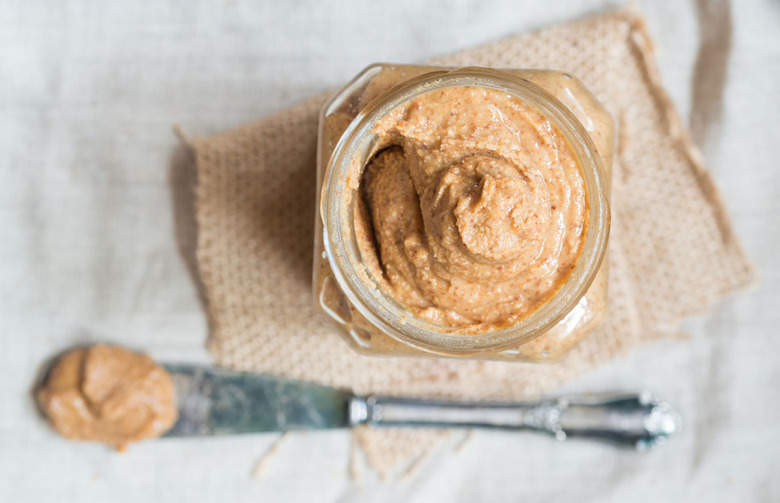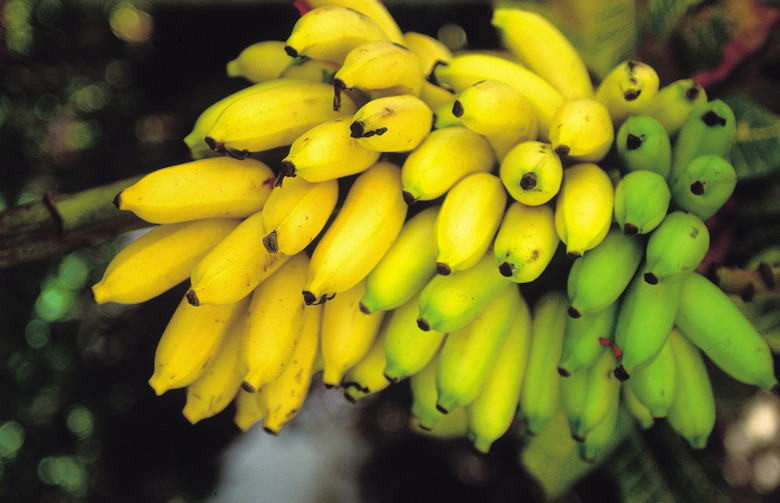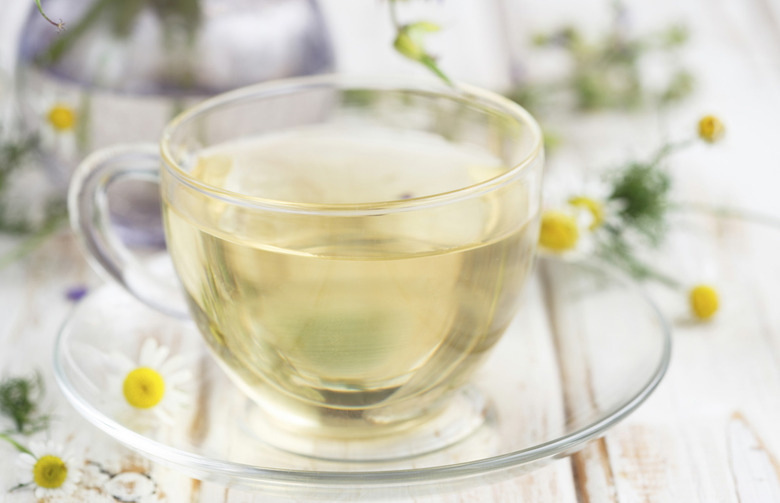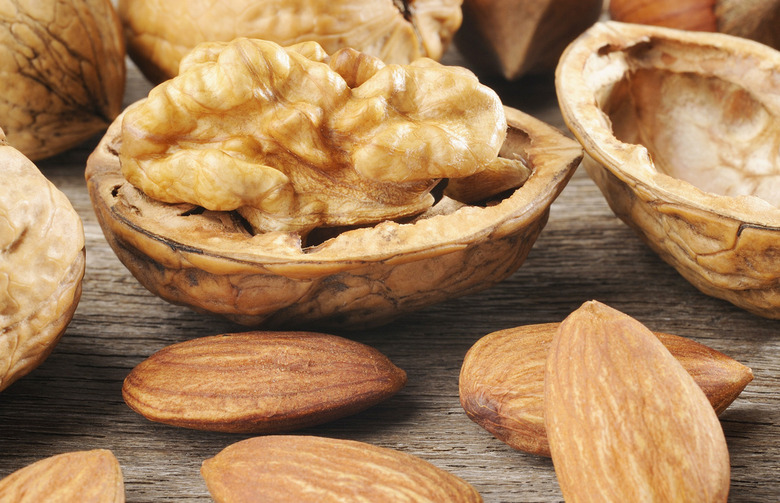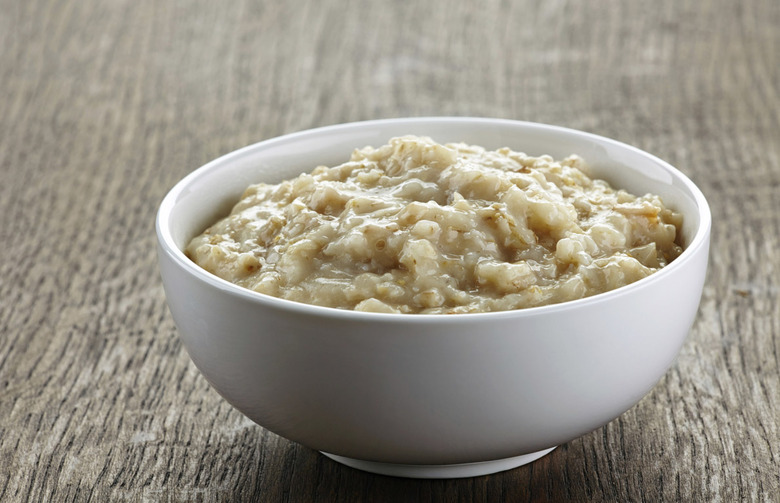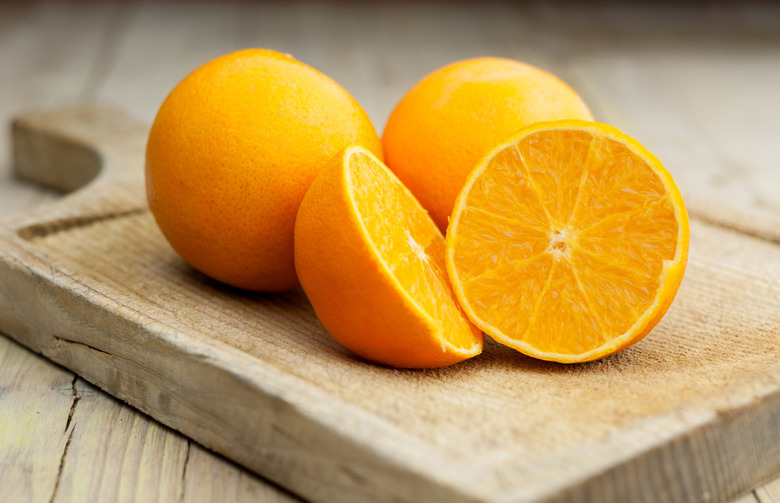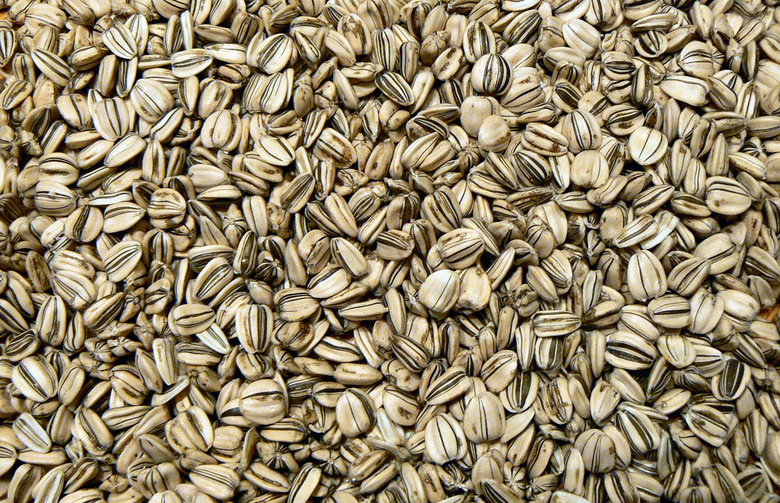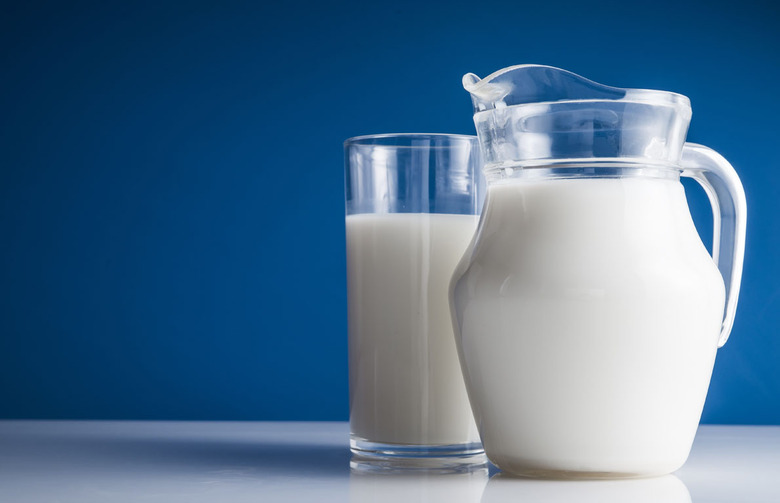9 Foods That Will Help You Sleep On A Long Flight
Traveling anywhere by air can really take a toll on the body. You're out of your comfort zone, surrounded by strangers, and have completely relinquished control to the pilot of your plane (not an easy feat for many people). The emotional and physical stress of flying — especially long distances — can bring on boredom, dehydration, deep vein thrombosis, sleep deprivation, anxiety, and a host of other uncomfortable developments.
Almond Butter
Almond butter ensures your blood sugar doesn't get too low. If blood sugar falls significantly, it can disrupt your much-needed sleep. However, the catch is that because it is a kind of paste, it might not pass through TSA, except in small amounts. If you can't find it at a shop once you're past security, try eating some on the way to the airport, to get your body relaxed and ready for rest. Better yet, eat two tablespoons of almond butter after resting on a flight, soon after you land, and you'll feel refreshed.
Bananas
Full of serotonin (a neurotransmitter that can trigger sleepiness) and magnesium (which relaxes muscles), bananas are an easy food to pack for your trip. Bananas are commonly used to treat certain sleep disorders and insomnia, and have been found to significantly increase sleep time in addition to helping your body become accustomed to a regular sleep schedule, as potassium helps your muscles relax. Double score!
Chamomile Tea with Honey
Chamomile tea is known for its relaxing effects; it calms nerves and reduces anxiety. But does the honey part surprise you? Louise Hendon, co-founder of Paleo Living Magazine, says that honey often helps people sleep because if blood sugar falls too low, it can disrupt a snooze session. Honey helps to make sure that doesn't happen. If your airline doesn't serve honey, ask the Starbucks or any coffee shop in your terminal for as small, to-go packet.
Cherries
These pitted fruits provide naturally occurring melatonin (the regulator of the sleep/wake cycle). You have your choice of eats or drinks with cherries. Pack a plastic baggie full of them, or mix one cup tart cherry juice with two cups sparkling water for a nice spritzer.
Nuts
Walnuts and almonds are an excellent source of vitamin B6, which is required for the normal production of neurotransmitters and melatonin. Melatonin is the key hormone that helps regulate the sleep/wake cycle. Brian Tanzer, MS, CNS, of The Vitamin Shoppe suggests mixing nuts and seeds into a cup of yogurt, or eating about a third of a cup of the nuts alone.
Oatmeal
It's not just for breakfast! Shelley Carella, head of community at Yummly, says that a bowl of oatmeal a few hours before you'd like to go to bed can help you sleep through the night, so eat your oats before you go to the airport. Oats contain a good amount of melatonin and tryptophan, and unlike many carbs, they don't digest quickly enough to make you hungry in the middle of the night. (Which begs the question: How does it make sense that we eat oatmeal for breakfast?!)
Oranges
According to Dr. Shawn Talbott, nutritional biochemist, oranges and other citrus fruits have been shown to directly stimulate areas of the brain associated with stress resilience. On the biochemical side of stress, oranges contain both vitamin C and flavonoids, which are among the most effective nutrients for reducing concentrations of cortisol, a stress producer. I don't know about you, but the less stress I'm feeling, the easier it is for me to sleep.
Seeds
Sunflower seeds, chia, and sesame seeds contain tryptophan. Mia Russo Stern, CHC, AADP and certified holistic health coach, says that pumpkin seeds also contain magnesium, which is great for sleep and muscles and can create an overall feeling of relaxation.
Warm Milk
Normally available on all fights, milk has the proper protein-to-carbohydrate ratio to stabilize blood sugar levels, and the calcium it contains induces sleep, according to Dr. Barry Sears, a leading authority in anti-inflammatory nutrition and author of the recently published book The Mediterranean Zone.
